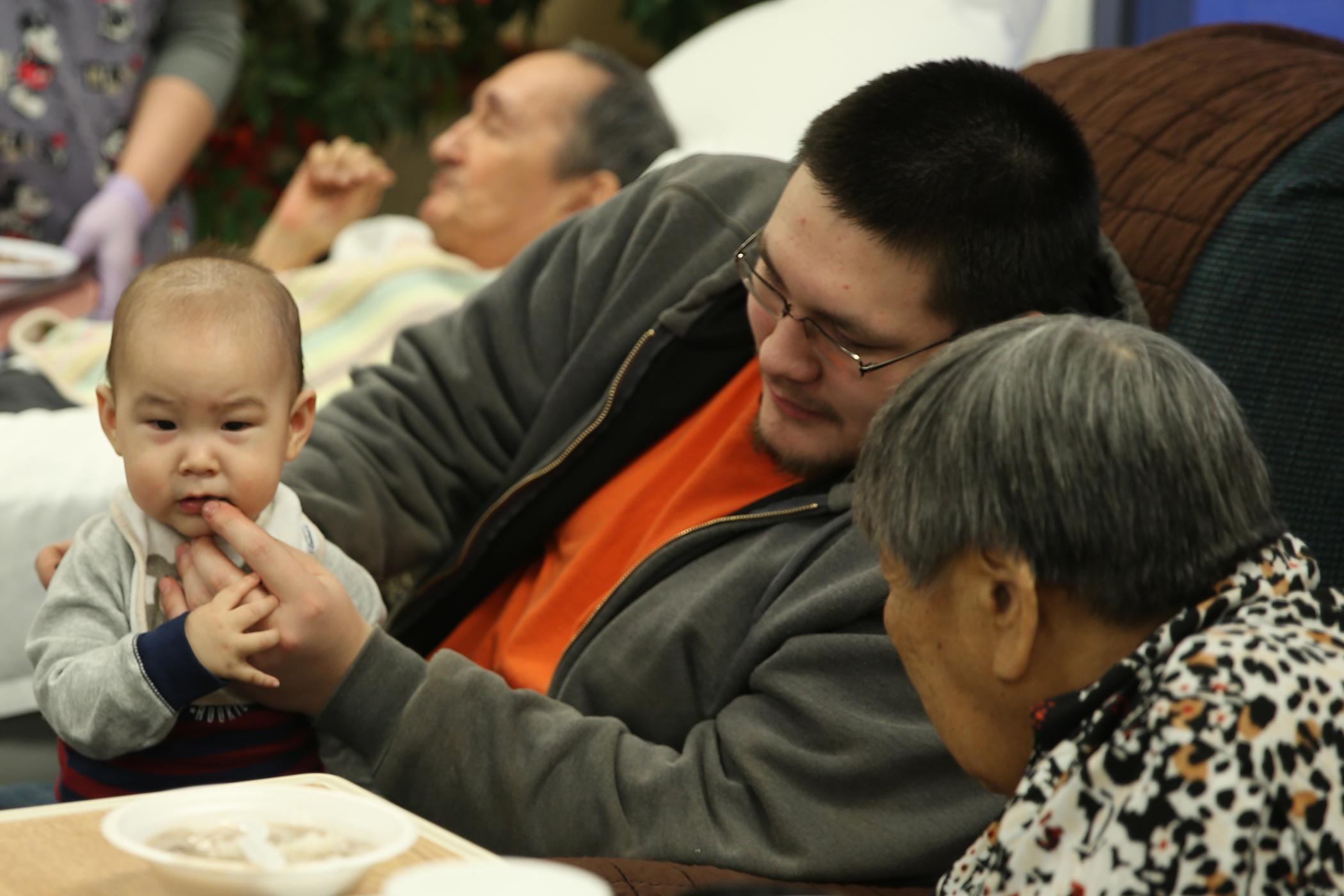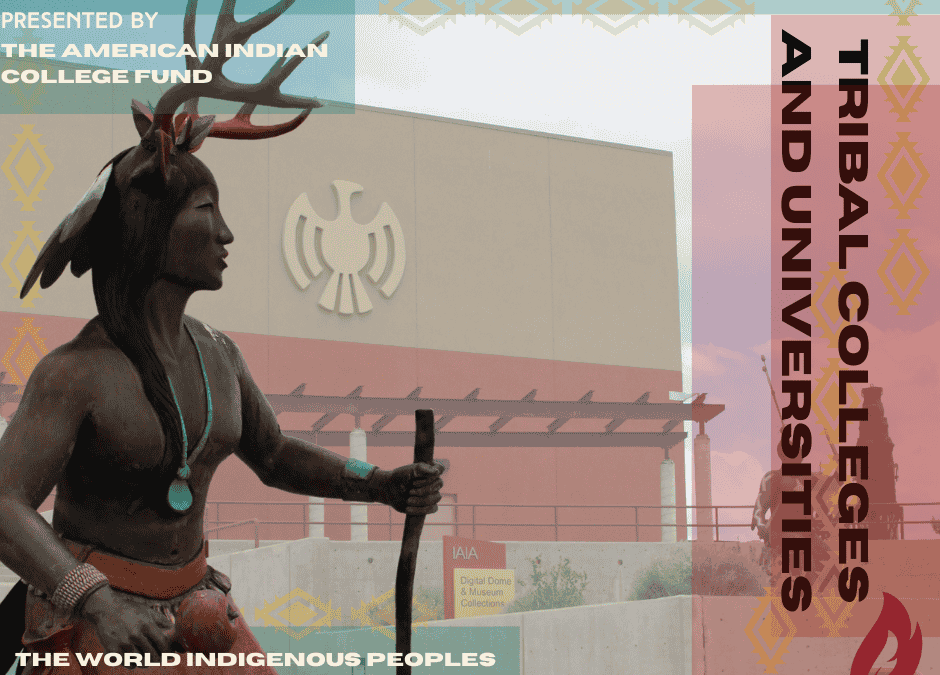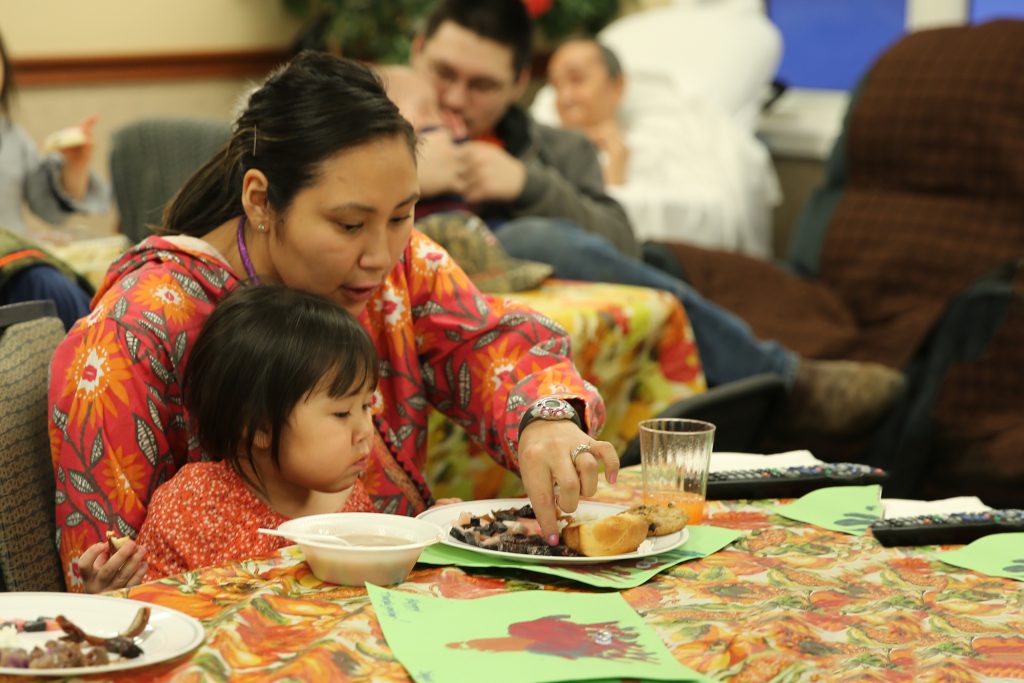
The Iñupiat family engagement event was held at the Aimaaġvik Assisted Living Center to celebrate the season with the elder residents.
by Kimberlee Brent, Iḷisaġvik College, Assistant Professor of Education, and Heidi Ahsoak, Uqautchim Uglua Learning Center, Center Manager
At the heart of Iḷisaġvik College’s Restorative Teachings project is the desire to nurture and support meaningful connections between early childhood students, their families, and the community as a whole. It is through these connections that knowledge of language and culture, love, respect, and compassion are passed from one generation to the next.
For the Iñupiat, an ancient people who have inhabited the northern regions of Alaska for thousands of years, potlucks are an opportunity to build and maintain strong connections.It is a time to gather with friends and kin, share highly prized subsistence foods, and revel in aġġi, the holding of traditional drumming and dancing, which are always accompanied by warm conversation and laughter.
On a cold, dark winter afternoon in Utqiaġvik (Barrow, Alaska), the staff of Uqautchim Uglua Learning Center escorted nine of their two- and three-year-old children and 14 family members to Aimaaġvik Assisted Living Center to celebrate the season with a potluck held for the elder residents. Aimaaġvik, loosely translated as “a place for home,” is one of Uqautchim Uglua’s community partners, along with its parent organization the Arctic Slope Native Association (ASNA). Joining the celebration were staff members from Aimaaġvik, representatives from ASNA, and members of Iḷisaġvik College administration including Iḷisaġvik College President Pearl Brower. Forty-five participants celebrated and shared the abundance of locally harvested foods such as tuttu (caribou), maktak (bowhead whale blubber), pivsi (dried fish), and aġvik quaq (frozen raw whale meat).
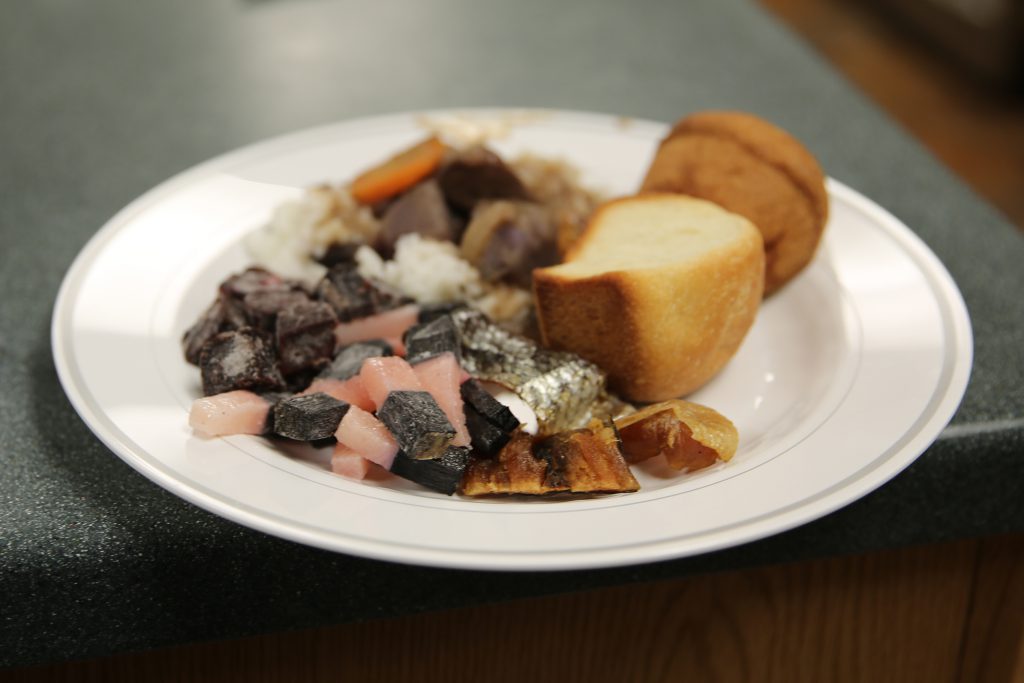
Iñupiat community members celebrate with locally harvested foods such as tuttu (caribou), maktak (bowhead whale blubber), pivsi (dried fish), and aġvik quaq (frozen raw whale meat)
At the heart of Iḷisaġvik College’s Restorative Teachings project is the desire to nurture and support meaningful connections between early childhood students, families, and the community as a whole.
The cooperation of many hearts and hands contributed to the success of the potluck. Because of the community members’ compassion and willingness to share, this gathering created meaningful connections across generations. From the sounds of children laughing to the Iñupiaq language flowing from elders, it is these connections that are necessary for true health, wellness and security.
During subsequent visits, the children of Uqautchim Uglua Learning Center returned to Aimaaġvik Assisted Living Center to entertain the elders with holiday songs and traditional dancing. In January 2017, they also returned to celebrate and welcome the New Year with their “adopted” aakas and aapas (grandparents) from Aimaaġvik.
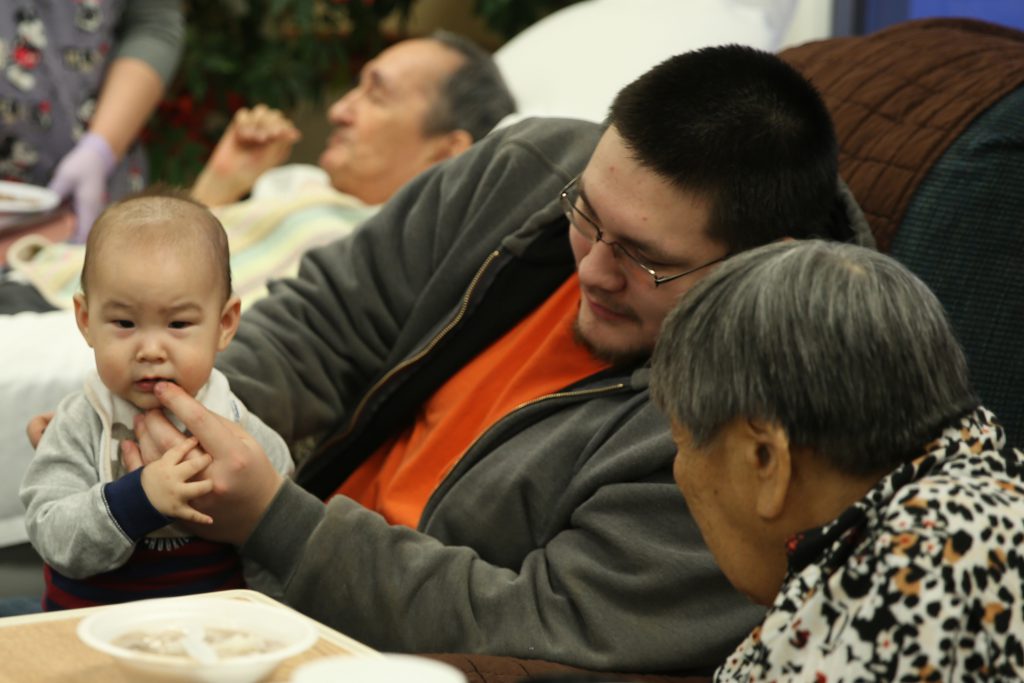
Iñupiat elder residents from the Aimaaġvik Assisted Living Center enjoyed the potluck and created meaningful connections across generations.

